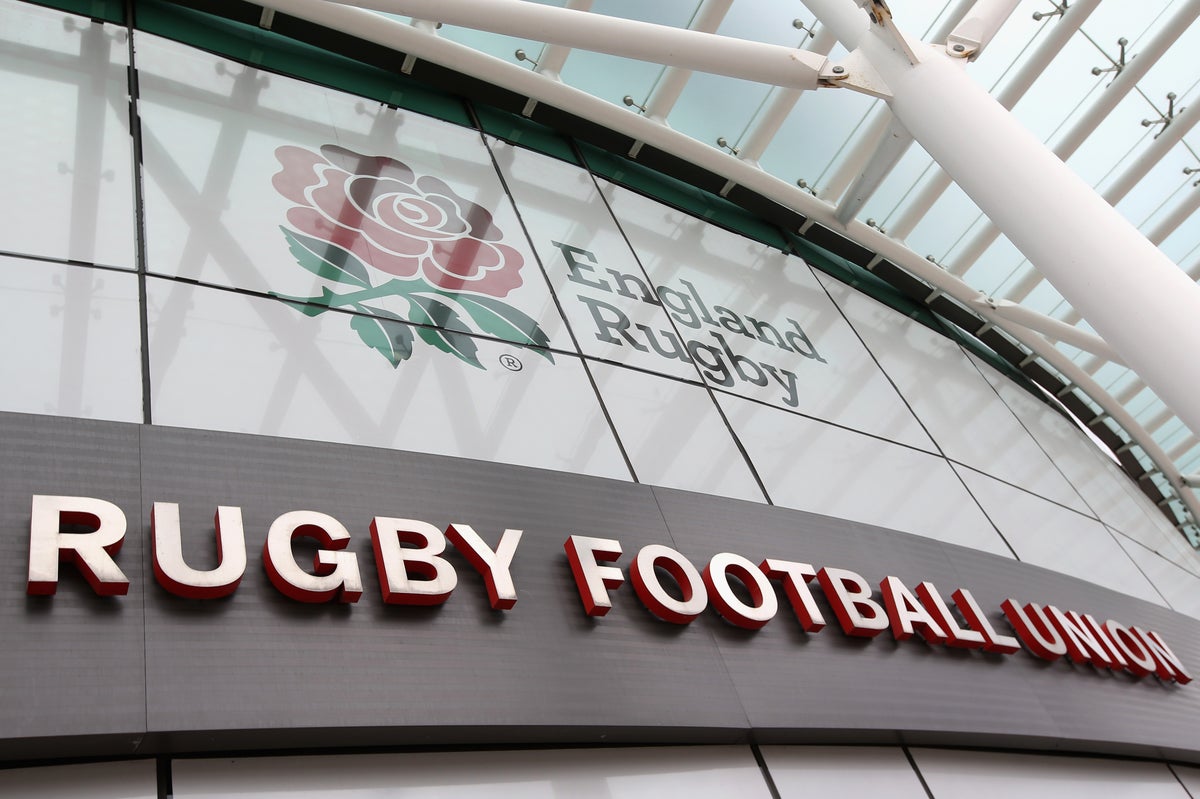
The Rugby Football Union (RFU) has urged Championship clubs to get on board with proposals for a revamped second tier as it sets out plans for an overhaul of the English game.
The RFU is negotiating a new Professional Game Partnership (PGP) that will shape the structure of English men’s rugby for the foreseeable future.
The PGP will include hybrid contracts for a group of about 25 England internationals to form the core of Steve Borthwick’s squad, and could place limits on squad sizes in the Premiership, with the development of younger players prioritised.
While the PGP will proceed regardless of progress on the changes to the second tier, the RFU have underlined their desire to alter the competition to make it more commercially viable and “investable”. Jersey Reds, the winners of the Championship last season, ceased trading in September.
Championship clubs have so far noted their opposition to the plans, preferring instead to develop their own ideas and build sustainably. But the RFU has suggested it is now or never for clubs to get on board with their proposals, having previously cut funding to the second tier in 2020.
“We want to invest in an investable model,” said Bill Sweeney, the RFU’s chief executive, who is in the middle of a series of crucial meetings. “We’ve shown that if you pour money into the existing structure of the Championship, it just doesn’t deliver. That’s not being disrespectful, it just doesn’t.
Jersey, last season’s Championship, ceased trading in September— (Getty Images)
“What [the Championship clubs] have said is that if they don’t opt in, they would rather be the top of the community game pyramid. They’ve said that. I’m not entirely sure why they would say that – if you are a Coventry or an Ealing, why wouldn’t you want to be part of this?
“If you’d prefer to be top of the community game pyramid with your normal promotion and relegation through, it’s not really the performance model we are investing in. If you can’t have that model, and it’s not delivering the benefits and connected in the way we want it to be, you’d rather take that money and invest it in some of the other things that are being talked about.”
The plans have been spearheaded by Conor O’Shea, the RFU’s executive director of performance rugby, while Steve Diamond, the former Sale and Worcester director of rugby, has been brought on board as a consultant.
The hope is to grow the profile and sustainability of the English second tier, which does not currently have a broadcast deal or title sponsor, with a relaunch ahead of the 2025/26 season.
The RFU has confirmed that it is open to a return for clubs like Wasps, Worcester and London Irish, who were all suspended from the Premiership after encountering financial difficulties but remain as established rugby brands.
The process could begin with expressions of interest early next year after minimum operating standards are set in conjunction with the 11 existing Championship clubs.
“The current Championship clubs will get the first opportunity to say, ‘We are in’ or ‘we are out’,” O’Shea explained. “We’ll set a bar which is not unattainable and they’ll be part of setting that new minimum operating standard, then they can look at it and say [if they are in or out].
Bill Sweeney (left) and Conor O’Shea have urged Championship clubs to support their plans— (Getty Images)
“Then we’ll say, “Are there additional teams who can come in?”. We can’t just keep on doing what we’ve always done and expect a different result. What we want is a league with the best teams in it with the most potential to grow commercially and to be a sustainable, investible model. We want this to be a viable and sustainable league”
The PGP will also shape the future of England men’s relationship with the Premiership and their players, including the introduction of hybrid-type contracts affording head coach Borthwick greater control over a group of about 25, allowing better workload management.
While the plans have not been signed off, the RFU are understood to have already offered an “enhanced EPS” contract to several key players whose current club deals expire at the end of the season. These one-to-three-year deals will be selected by the head coach each autumn.
Jamie George and Maro Itoje are expected to be among the first recipients of deals worth around £150,000 a year to supplement their extensions with Saracens, while Henry Arundell has declined a deal to remain with Racing 92 in Paris.
Maro Itoje is expected to stay at Saracens— (Getty Images)
England players have previously received about £23,000 per appearance for their country. The new contracts will thus represent a reduction in income for some, but the security offered is understood to appeal to players who could lose out during periods of injury.
Beneath the elite group will sit a group of a larger group of England squad members, with the re-introduction of regular fixtures for England ‘A’, formerly the Saxons, planned.
This side will have a developmental look, with a number of the most promising U20s given opportunities. England A will face Portugal during the Six Nations with negotiations ongoing over other possible opponents in 2024.
In the Premiership, senior squads could be slimmed down to afford younger players more regular playing time, as has begun to happen this season with clubs preparing to bed in the proposals.
Henry Arundell has extended his contract at French club Racing 92— (PA Wire)
There may also be a cap placed on the number of youngsters each club is allowed to keep to prevent talented individuals from being stockpiled, instead allowing them to explore opportunities elsewhere.







